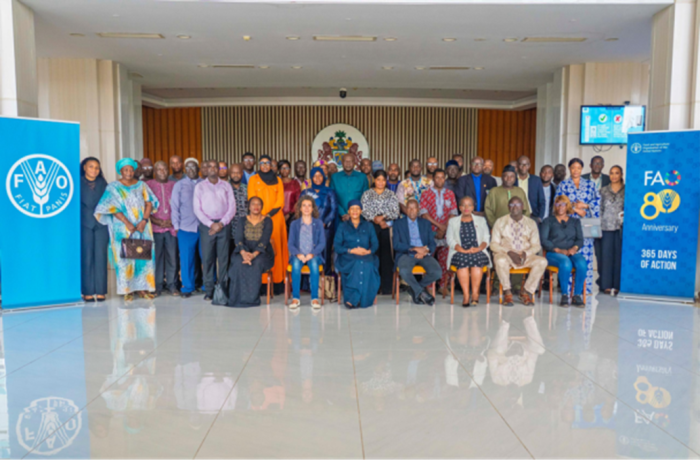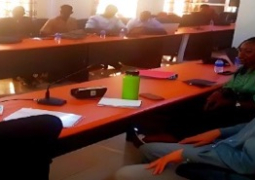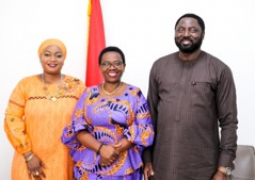
The session focused on overcoming delivery challenges, promoting mutual accountability, and aligning efforts with national and global development goals.
One and a half years into the rollout of the Country Programming Framework (CPF 2024–2028), this three-day review is aimed at evaluating achievements, identifying challenges, and strengthening collaboration for effective implementation.
The CPF serves as a strategic road map aligning FAO’s interventions in The Gambia with its global Strategic Framework (2022–2031) and the 2030 Sustainable Development Agenda.
FAO Representative in The Gambia, Ms Moshibudi Rampedi, emphasised the participatory nature of the CPF’s development and its alignment with the country’s development priorities.
“This framework is not only a tool for planning but a shared commitment to development outcomes,” Rampedi stated.
She acknowledged challenges such as procurement delays and coordination issues but stressed the session’s role in addressing these through open dialogue and joint problem-solving.
The review, she said, serves as a platform for partners to share lessons, propose solutions, and build consensus on ways to improve delivery.
Practical training sessions were also held to guide partners through FAO’s Operational Partners Implementation Modality (OPIM), procurement procedures, and Letters of Agreement (LoAs), equipping them to navigate operational requirements more efficiently.
Representatives from various government ministries praised FAO’s longstanding support.
Momodou Kanyi, Principal Assistant Secretary at the Ministry of Environment, Climate Change and Natural Resources, described the event as a valuable moment for reflection and collective learning, particularly in strengthening forestry and climate policy implementation.
Echoing these sentiments, Babanding Kanyi, Principal Assistant Secretary at the Ministry of Fisheries, Water Resources and National Assembly Matters, commended FAO for the support in strengthening the fisheries sector.
He also highlighted the impactful work done under the FISH4ACP and PROREFISH projects, particularly in developing the oyster value chain and advancing climate-resilient fisheries.
FAO Sub-Regional Fisheries and Aquaculture Officer, Ms Paula Anton, pointed to the vast untapped potential in The Gambia’s marine and aquaculture resources.
“You have abundant ecosystems and an eager youth population. Yet it’s still rare to find local fish on restaurant menus. This is a gap we must urgently address,” she expressed concern.
Ambassador Alhagie Nyangado, Permanent Secretary at the Ministry of Agriculture, Livestock and Food Security, urged participants to use resources effectively and cut through bureaucracy to serve vulnerable communities.
“If you delay an activity that could benefit a poor child in a rural area, imagine that child is your own,” he remarked.
The CPF Review Session also coincided with preparations to commemorate FAO’s 80th anniversary on 16 October 2025. Over the past four decades, the UN agency has partnered with The Gambia to deliver community-driven and climate-smart solutions from solar-powered, fenced gardens enabling year-round food production to initiatives focused on policy reform, institutional strengthening, food fortification, and rural infrastructure.
As the session concluded, partners left with renewed commitment to improving delivery mechanisms and contribute to The Gambia’s Green Recovery-Focused National Development Plan and the UN Sustainable Development Cooperation Framework.
The CPF remains rooted in FAO’s Four Betters slogan for – ‘Better Production, Better Nutrition, a Better Environment, and a Better Life.’




